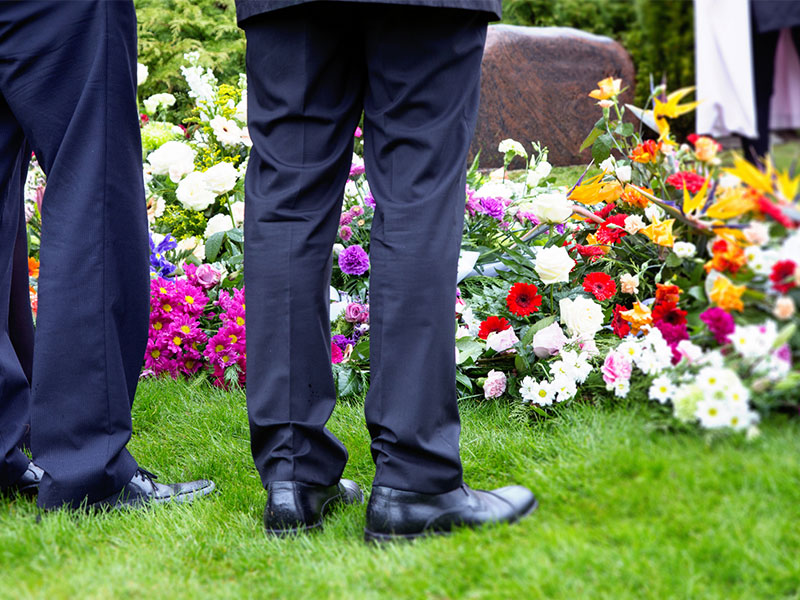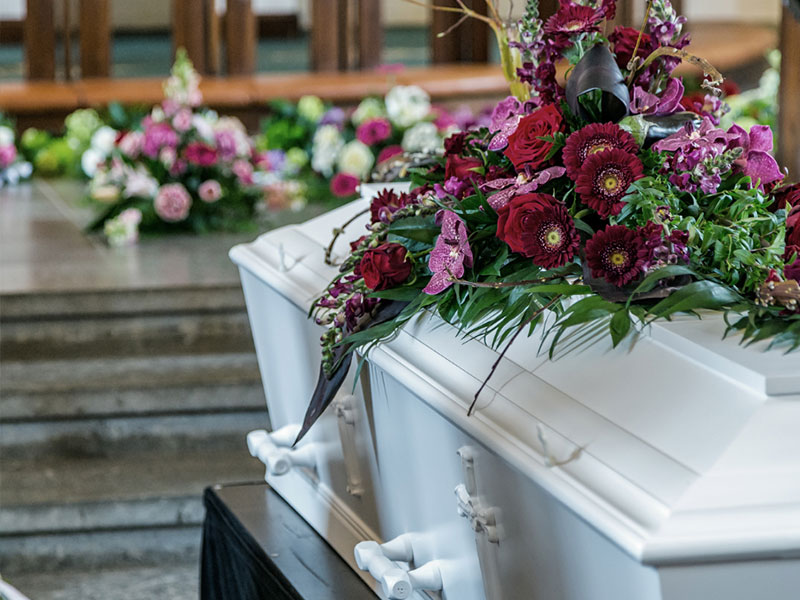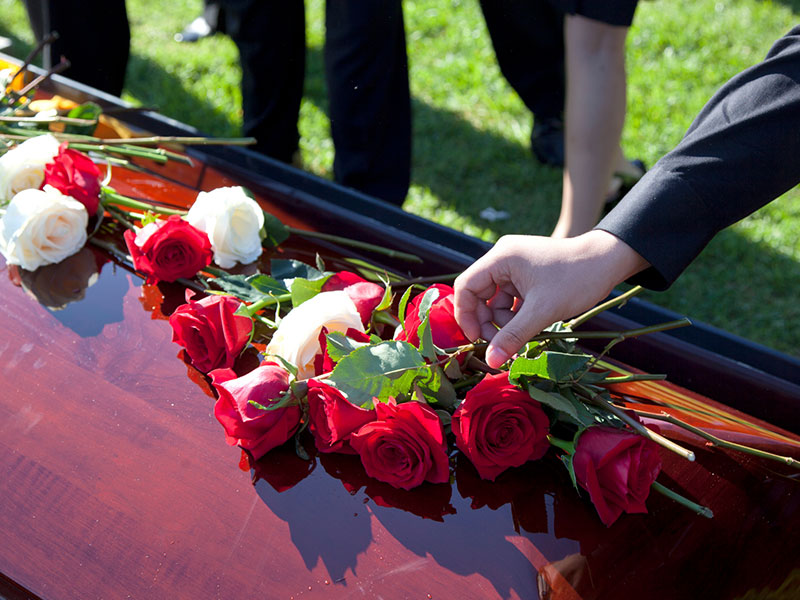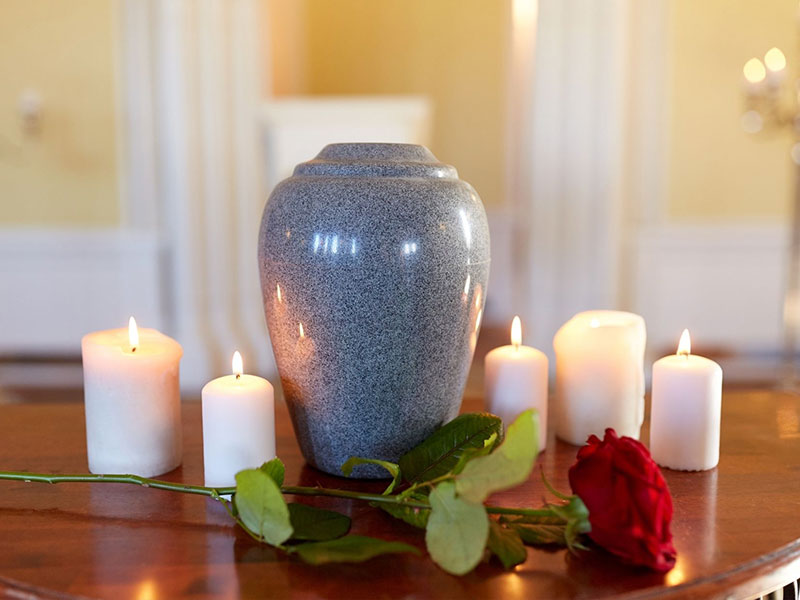
Types of Services held by Burnett Regional Funeral Services
Our Role
An important and traditional part of a funeral director’s role is to assist with the practical aspects of a funeral, such as care of your loved one, and coordinating when and where the funeral will be held. These days, families are increasingly seeking guidance and advice on the celebratory aspects of a funeral, such as the style and content of the service, the choice of music, and other touches that reflect the life of your loved one.
Our objective is to be your caring and trusted adviser, and to play a key role in planning of an event that can sometimes be quite stressful and traumatic.
Death can occur in many different circumstances: at home, at work, overseas, unexpectedly, in a hospital or nursing home.
During our initial discussion with you, we will generally make arrangements to:
- Transfer your loved one into our care; and
- Agree on a suitable time/place for us to meet with you, to discuss the funeral arrangements.
Both of these things usually happen within the first 24 hours after a death occurs.




Funeral services tailored to your needs
Every family’s farewell is different, which is why we offer a range of burial and cremation options designed to reflect your wishes. Whether you prefer a traditional service, a simple gathering, or a private farewell, our experienced team will guide you with care and professionalism.

Burials
Every burial service is unique, and we’ll work with you to create a farewell that feels right for your family. Whether you prefer a traditional church service, a quiet graveside gathering, or something in between, our team is here to guide and support you.
Our burial options include:
- Church service and burial
- Other venue and burial
- Graveside service burial
- Farewell time or viewing and burial
- Unattended/direct burial
- Memorial service following a direct burial

Cremation
Cremation offers flexibility in how you choose to honour your loved one. From services held in a chapel or other venue, through to a private farewell or unattended cremation, we’ll help ensure the arrangements reflect your wishes.
Our cremation options include:
- Church service and cremation
- Other venue and cremation
- Chapel service and cremation*
- Farewell time or viewing and cremation
- Direct/unattended cremation
- Memorial service following a direct cremation
*We have strong working relationships with local crematoriums who provide access to their chapels
Our funeral packages
Bronze Service
A simple, dignified service
The Bronze Service provides a simple yet meaningful way to say goodbye. Your loved one will be cared for in our facilities and placed in a classic, low-range coffin or casket. Families may spend time together in a private viewing at our premises, and the ceremony will be guided by one of our experienced celebrants. Funeral notices are shared on our website and Facebook page to help family and friends stay informed. This option is designed to provide comfort and dignity in an uncomplicated way.
From $9,100 including GST*
Silver Service
A personalised farewell
Our Silver Service offers families more choice and flexibility in creating a personalised farewell. It includes the care of your loved one and the provision of a mid-range coffin or casket, offering a higher level of finish and style. A viewing can be held at our premises, and the ceremony will be led by a celebrant provided by our team. Notices are placed online to ensure your community is aware and able to support you. This service allows families to add personal touches while keeping arrangements straightforward and respectful.
From $10,320 including GST*
Gold Service
A comprehensive, individual tribute
The Gold Service is our most comprehensive option, designed for families who wish to create a truly individual tribute. Your loved one is placed in a solid timber coffin or an Expressions coffin, which can be personalised with photos, artwork, or meaningful designs. A viewing at our premises is available, and the service is conducted by a celebrant provided by us. Notices are shared online to inform family and friends. This service gives you the highest level of personalisation and choice, ensuring a farewell that is both memorable and deeply meaningful.
From $11,580 including GST*
*These estimates are subject to change and do not include additional fees and charges (if applicable).
You can view our funeral services fees & charges here.
How we support you through the process
Initial Arrangement Meeting
Our initial face to face meeting with you can take place in our Office or we can also visit you at home to start the process. Remember there is no rush, take your time and gather the support of family and friends before making any decisions.
During this arrangement meeting, one of our caring Funeral Directors will assist you to decide on all of the practical and celebratory aspects of the funeral. A number of legal forms will also need to be completed.
The arrangement meeting will generally take around 1 hour.
We record the decision and choices made in our booklet “About the Funeral”, prepare the documents and leave you with a detailed estimate of the costs of the funeral.
Examples of some of the decisions that need to be made include:
- When and where will the funeral be held? · Will there be a viewing?
- Decide who you would like to officiate at the service – Clergy or Celebrant
- Will music or an audio-visual presentation be incorporated into the service?
- Will there be an Order of Service printed in Service Booklets?
- Will the death and funeral be advertised in the newspaper?
- Will there be a gathering afterwards, ie. a wake?
- Are there specific ways in which you wish to personalize the service, eg. display of memorabilia
Our Funeral Director will also ask you to supply clothing that your loved one will be dressed in. If you are undecided as to which clothing will be used feel, free to discuss options with our staff and someone will come and collect them at a time that you.

What You Can Do In Advance?
As there is often sometime between the death and the arrangement meeting, there are a number of things you can do to prepare for this meeting, such as:
1.
Decide whether the funeral will be a burial or cremation
2.
Decide on and gather together the clothing you may wish for your loved one to wear
3.
Give some thought to the wording of the personal notices you may wish to place in the newspaper
It is also helpful to gather the personal details that are required to arrange the funeral and legally register the death with the office of Births, Deaths and Marriages. You can use our online form (Form 8 – Death Registration Information) to record this information and it will speed up the process for your meeting.
Once the death is registered, Births, Deaths and Marriages will send you a official death certificate, which is often needed in relation to any legal and estate issues that may need to be attended to. This can take up to 6 -10 working days to be sent to the nominated person on Form 8.
Frequently asked questions
What happens next
After the Arrangement Meeting
After the initial arrangement meeting, we follow through on the various decisions made.
The many hours of planning and behind the scenes preparation is vital in ensuring that the funeral is carried out in accordance with your wishes. A number of follow up phone calls are usually made during this period, to confirm or clarify any uncertain issues and details.
Occasionally a further face to face meeting is needed.
On the Day of the Funeral
On the day of the funeral, you will meet one of our experienced funeral directors, who is responsible for coordinating all aspects of the service.
Our conductor’s primary focus is to ensure the service runs smoothly and that the day is as comfortable for you and your family.
After the Funeral
If you have any concerns at all following the funeral, please feel free to contact your funeral director.
If there has been a cremation, one of our staff will call you to make an appropriate time to deliver the ashes or if alternative arrangements have been made for your own personal collection. If you would like to discuss the options for memorialization, feel free to talk to any of our staff.
We recognize that losing a loved one can be a life-changing experience, and we invite you to contact us following the funeral, if you feel we can help in any way.